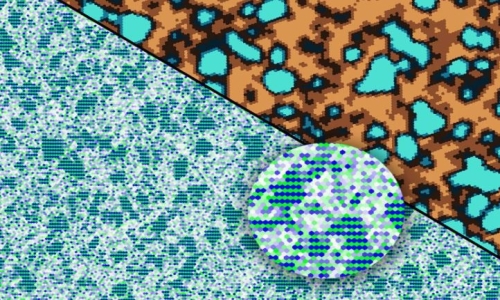


 6:8:6
6:8:6  2019-06-22
2019-06-22  2400
2400

Today we will be discussing another very important concept in Islam, today we will be discussing Islam and Substance Abuse.
Alcohol consumption is the world’s third largest risk factor for disease and disability; in middle-income countries, it is the greatest risk. Harmful use of alcohol results in the death of 2.5 million people annually, causes illness and injury to millions more, and increasingly affects younger generations and drinkers in developing countries.
Alcohol is a causal factor in 60 types of diseases and injuries and a component cause in 200 others. Almost 4% of all deaths worldwide are attributed to alcohol, greater than deaths caused by HIV/AIDS, violence or tuberculosis. Alcohol is also associated with many serious social issues, including violence, child neglect and abuse, and absenteeism at workplace.
Harmful alcohol consumption is risky both for the drinker and for other people. An intoxicated person can put people in the way of harm by involving them in traffic accidents or violent behaviour, or by affecting co-workers, relatives, friends or strangers.
While most of the adult population abstains altogether or drinks at low-risk levels most of the time, the broad range of alcohol consumption patterns, from daily heavy drinking to occasional hazardous drinking, creates significant public health and safety problems in nearly all countries.
The impact of alcohol consumption reaches deep into society. Alcohol consumption causes harm far beyond the physical and psychological health of the drinker. It also causes harm to the well-being and health of others.
Alcohol is the world’s third largest risk factor for disease burden; it is the leading risk factor in the Western Pacific and the Americas and the second largest in Europe.
The harmful use of alcohol is also associated with several infectious diseases like HIV/AIDS, tuberculosis and sexually transmitted infections (STIs). This is because alcohol consumption weakens the immune system, reduces inhibitions, effects judgment and has a negative effect on patients’ adherence to antiretroviral treatment.
Many countries recognize the serious public health problems caused by the harmful use of alcohol and have taken steps to adopt preventive policies and programs, particularly to reduce drunk–driving and the carnage that it causes. However, it is clear that much more needs to be accomplished.
The young Muslims of today are facing an ever-increasing number of dilemmas. One of these is drugs. What does Islam have to say about it? How should Muslims regard drugs? To understand this we have to see what the Qur’an and Ahaadith say regarding intoxicants i.e. narcotics.
Allah (SWT) states in the Holy Qur’an: -
O You who believe! Intoxicants and gambling, (dedication of) stones and (divination by) arrows are an abomination of Satan’s handiwork. Avoid (such abominations) that you may prosper. (5:90)
Allah (SWT) has described intoxicants amongst other things as being appalling, despicable and hateful acts of Satan and he has commanded us to abstain from them, Allah thereafter states in the next verse: -
Satan’s plan is to sow hatred and enmity amongst you with intoxicants and gambling, and to hamper you from the remembrance of Allah and from prayer. Will you not give up? (5:91)
This Aayah tells us how it is a detestable act of Satan, because intoxicants apart from sowing the seeds of enmity also stop you from the sole purpose of having been sent to the world, namely the remembrance of Allah.
Bear in mind that when the term intoxicant is used it also encompasses narcotics, because they to among other things result in the loss of self-control.
There are also many Ahaadith stated by the Holy Prophet (Peace and blessings be upon him) in regards to intoxicants.
Jabir (may Allah be pleased with him) reported that the Holy Prophet (Peace and blessings be upon him) said, "Whosoever drinks wine, whip him. If he repeats it for the fourth time, kill him." He (Jabir) says, A man was later brought to the Prophet (Peace and blessings be upon him) who had drunk wine for the fourth time. He beat him, but did not kill him.
The following Hadith clearly states that the Holy Prophet (Peace and blessings be upon him) prohibited intoxicants.
We live in a culture in which mass advertising glorifies excessive consumption and the near instant gratification of desires. “Having it now” unfortunately, proves to be a slippery slope for millions, and uninhibited desires prove to be like an uncontrollable fire, growing stronger each time they are fed. Some desires becomes overriding compulsions that could take years to overcome, if at all. The word addiction is often used to describe such a condition.
What exactly is addiction? The term “addiction” is used in many contexts to describe an obsession, compulsion, or excessive physical dependence or psychological dependence, such as: drug addiction, alcoholism, compulsive overeating, problem gambling, computer addiction, etc. In other words, addiction has many forms, some of them related to substances such as drugs or alcohol, while others are related to extreme psychological dependence of the individual on behaviors such as gambling, overeating, and increasingly internet surfing.
We have an astonishing figure here, Nearly 14 million Americans meet diagnostic criteria for alcohol use disorders!
Estimates of the economic costs of just alcohol abuse, collected by the World Health Organization, vary from one to six per cent of a country’s GDP. Countries around the world spend hundreds of billions of dollars in combating the drug trade, rehabilitating drug addicts and in dealing with the health and social costs of the increased use of narcotics by young people and teenagers. Addiction to pornography is afflicting millions in every age group around the world, leading to decreased productivity, and an increase in crimes against women and children.
The fact that addictions of various types have grown into enormous social problems that are threatening not only individuals and families but entire societies is clear. Addictions in fact, are the scourge of the human civilization, and the urgency of making a global effort to eradicate them is more critical than ever.
Countries around the world have tried hard to control if not eradicate various addictions in their societies. Although millions have freed themselves from the slavery of their base instincts, millions more continue to fall into this abyss. The number of addicted individuals, both in real terms and as a percentage of the total population, has skyrocketed in recent times.
Let us explore how Islam views the problem, and how its prescriptions and world-view might be an antidote.
One of the salient features of the Islamic world-view is a balanced and moderate outlook on life and its challenges. Islam recognizes that human beings have natural desires, and prescribes ways of fulfilling these desires without allowing the desires to take control of one’s life. The Glorious Quran says:
“O Children of Adam! Wear your beautiful apparel at every time and place of prayer: Eat and drink: But waste not by excess, for Allah loveth not the wasters.” [Al-Quran 7:31]
Drugs such as cannabis, cocaine, opium, and the like are definitely included in the prohibited category of khamr. It is well known that the use of such drugs affects the sensory perceptions, making what is near seem distant and what is distant seem near; that their use produces illusions and hallucinations, so that the real seems to disappear and what is imaginary appears to be real; and that taking drugs in general impairs the faculty of reasoning and decision-making. Such drugs are taken as a means of escape from the inner reality of one's feelings and the outer realities of life and religion into the realm of fantasy and imagination.
Added to this psychological fact are the physical effects: bodily lassitude, dullness of the nerves, and decline in overall health. The moral consequences, moral insensitivity, weakening of the will power, and neglect of responsibilities are also well known. Eventually, drug addiction weakens a person and makes him a diseased member of society. Furthermore, drug addiction may result in the destruction of the family or even drive one to a life of crime. Since obtaining drugs involves a great outlay of money, drug addiction may take its toll on the family budget and even it may tempt the drug addict to resort to illegal means to pay for drugs.
When we recall the principle that all impure and harmful things have been made haram, there can be no doubt in our minds concerning the prohibition of such detestable substances such as drugs, which cause so much physical, psychological, moral, social and economic harm.
Islamic religious teachings tell the story of a pre-Islamic society where people consumed very large quantities of alcohol, leading to moral and societal dissolution. When Prophet Muhammad (peace and blessings of Allah be to him) declared alcoholic beverages or any substance that intoxicates Haram (prohibited), he restored order, safety and morality to society. As the consequences of drinking alcohol are portrayed in Islamic texts as so severe, and the benefits of outlawing it so great, drinking alcohol has become one of the central behavioural prohibitions for Muslims.
On the issue of alcohol, the Prophet (peace and blessings of Allah be to him) recited the final verses from the Qur’ān.
“Oh you who believe! Verily, without a shadow of a doubt, wine, gambling, idol worshipping, instruments used for divining, for telling the future, are all impurities and pollutants from the activities of Satan.” (5:90)
They are the production of Satan. They are manufactured by Satan. He has created them and what is his purpose?
“The soul intention of Satan, through alcohol and gambling, is to cast hatred and enmity amongst you.” (5:91)
He wants to see you fight with each other. He wants to see you being in harmful competition against each other. This is his intention and another one of his intentions is:
“and he wishes to prevent you and stop you and hinder you from the remembrance of Allah and he wants to prevent you from performing prayers.” (5:91)
The fear of God helps Muslims keep from not only alcohol but all other evils prohibited in the Qur’ān.
The word khamr (intoxicants) is commonly associated with alcohol. But in Arabic, khamr has a broader meaning to it. Khamr is what comes over the human intelligence, which means everything that intoxicates a person’s mind. In this context khamr is not only alcohol, but also every substance that clouds the mind.
Khamr, at the time of our Prophet Muhammad (peace and blessings of Allah be to him) meant something that is flowing and in liquid form which clearly proves the prohibition of alcohol.
With that said we now have an overall idea of where Islam stands regarding substance Abuse.
Reality Of Islam |
|

Some 1.2 bi

A tiny robo

By applying
 9:3:43
9:3:43
 2018-11-05
2018-11-05
10 benefits of Marriage in Islam
 7:5:22
7:5:22
 2019-04-08
2019-04-08
benefits of reciting surat yunus, hud &
 9:45:7
9:45:7
 2018-12-24
2018-12-24
advantages & disadvantages of divorce
 11:35:12
11:35:12
 2018-06-10
2018-06-10
 6:0:51
6:0:51
 2018-10-16
2018-10-16
allah will not answer all your prayers
 6:56:28
6:56:28
 2022-01-01
2022-01-01
 2:42:26
2:42:26
 2023-02-02
2023-02-02
 5:58:12
5:58:12
 2021-12-18
2021-12-18
 4:25:57
4:25:57
 2023-02-11
2023-02-11
a hero waters thirsty wild animals
 9:4:9
9:4:9
 2022-01-06
2022-01-06
 6:0:8
6:0:8
 2023-03-19
2023-03-19
 8:30:23
8:30:23
 2022-03-03
2022-03-03
 5:41:46
5:41:46
 2023-03-18
2023-03-18
| LATEST |